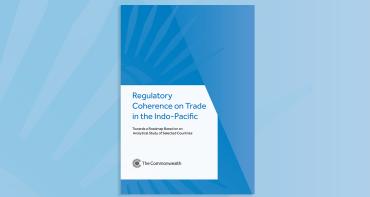Emerging petroleum-producing countries in the Commonwealth, and beyond, are striving to break the historical mould of fossil fuel-driven growth and forge a new path towards economic resilience.

Emerging petroleum-producing countries in the Commonwealth, and beyond, are striving to break the historical mould of fossil fuel-driven growth and forge a new path towards economic resilience.
Government officials shared their experiences during a recent two-week pilot training programme on the theme ‘Aligning the Petroleum Sector with Climate, Energy and National Development Goals’ organised by the New Producers Group (NPG).
The NPG is a network of around 30 countries, including 15 from the Commonwealth, jointly managed by Chatham House, the Natural Resource Governance Institute and the Commonwealth Secretariat.
The training was delivered virtually to multi-sectoral government teams from Guyana and Uganda (as well as Lebanon, Somalia and Suriname) through a series of plenary and national workshops.
Long-term vision and strategy
During the workshops, officials responsible for petroleum, power, infrastructure, planning, energy, environment, climate change and finance shared their sectors’ plans, ambitions, challenges, as well as underlying assumptions.
They also discussed commitments under the Paris Agreement on climate change and explored opportunities for more integration and alignment.
Participants agreed that having a national vision and strategy were essential for coherence in policy-making, sector planning and improving inter-agency cooperation.
“The clear message that emerged was the need for a national long-term strategy for managing the energy transition,” said Economic Adviser at the Commonwealth Secretariat, Naadira Ogeer, who led several of the training sessions.
“Many emerging producers happen to be developing countries in extremely tenuous economic situations, who also face the daunting task of eradicating poverty, dealing with the harsh realities of climate change, while having to provide affordable and reliable energy for growing populations.”
Ms Ogeer added that these were hugely complex issues; during discussions countries voiced concerns about the lack of technical expertise in their national agencies and inability to secure funding for low carbon energy projects.
“There needs to be more co-ordinated and collective international support to address these financing and capacity gaps – without it we will not be able to achieve an inclusive and fair energy transition,” she said.
Commonwealth support
Building on the workshops, the NPG plans to hold policy labs on areas pinpointed for development by members, such as emission reductions and green growth strategies.
The Commonwealth Secretariat also offers technical advice and support to member states who request it, through a number of key programmes.
The Natural Resource programme supports sustainable development and good governance of petroleum resources, including how to manage the energy transition.
The Commonwealth Sustainable Energy Transition Agenda targets an inclusive, just and equitable transition to low-carbon energy systems across the Commonwealth. Member-led action groups are being developed under three pillars: inclusive transitions, technology and innovation and enabling frameworks.
Finally, the Commonwealth Climate Finance Access Hub (CCFAH) helps small and other vulnerable countries to unlock available climate finance. The Hub places long-term national climate finance advisers within governments, to help them develop successful funding applications to international climate funds.



